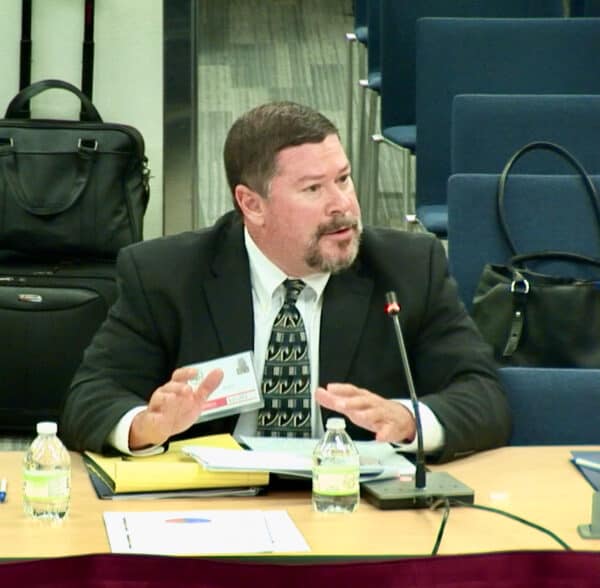During the Securities and Exchange Commission’s meeting of the Investor Advisory Committee (IAC) yesterday (September 21, 2023), a representative from the Angel Capital Association (ACA) gave a compelling presentation advocating on behalf of his industry and why we need more Accredited Investors and NOT fewer. The remarks were delivered by ACA CEO Patrick Gouhin.
Currently, under the direction of SEC Chairman Gary Gensler, the Commission is preparing new rules that will make the definition of an Accredited Investor more stringent, reducing the number of people who qualify to invest in Reg D securities offerings. While the Commission has not presented sufficient evidence that a high percentage of current Accredited Investors are being harmed by fraud in these private offerings, the policy shift adheres to the current leadership’s belief that investors must be protected from themselves.
Today, the ACA represents more than 16,000 Accredited Investors in 250 Angel Groups. These thousands of investors commit almost $1 billion annually into early-stage firms and report “no fraud to speak of.”
An Angel investor provides capital during early-stage funding rounds, typically a Seed round to Series A. However, these investors can continue to participate in backing a private firm as it matures. Angel investors accept the risk intrinsic to supporting startups and younger firms. This is how a market economy functions and some of these firms will eventually become successful, while most will fail.
The more qualified angel investors we help create, the more fuel will be provided to our entrepreneurs
Risk capital is vital for economic growth, innovation, and wealth creation. Private investors are the foundation for the US economy – the most robust and innovative in the world. The ACA provided an example of one of its Angel Groups – Desert Angels – who reviewed its performance over a ten-year period, having invested $47 million.
To reference the presentation:
- For every $1 million invested by Desert Angels, 58 new jobs were created.
- $4.58 million in wages were generated.
- Each million dollars drove $21 million in economic output.
The ACA declares that increasing the Accredited Investor thresholds would hinder capital formation AND halt and reverse the gains in gaining more diversity into the investor class. The group states that attracting diverse investors helps diverse founders – apparently, this is something the Commission opposes.
Entrepreneurs are the engine for economic growth and Angels are the fuel for the engine
To quote the ACA presentation:
“Because of historical income gaps along racial lines, diverse investors have only relatively recently entered the ranks of accredited investors, but if wealth criteria are raised, the more diverse investors at the lower end of the pay and wealth scale will be the first to be forced out of the investor pool. This would be an unfortunate setback in efforts to expand and diversify the base of investors (not contract it) and to spur innovation and economic growth.”
And;
“It would be counter-productive to knock some large percentage out of the game by arbitrarily raising thresholds when there is no problem to correct. Such an increase in thresholds would also disproportionately affect underserved communities throughout the U.S., eroding some 20 plus years of momentum as angel communities have infiltrated middle America contributing to local growth.”
The ACA also cautions against boosting disclosure for early-stage firms, something else the Commission wants to do for Reg D offerings, calling mandated disclosures “fruitless” and deriving up the cost and difficulty of starting a company.
While high-profile failures like the FTX debacle or the Theranos collapse capture popular media headlines driving FUD, the narrative that we must protect investors to a greater degree is not accurate:
“This perception is not grounded in the facts and statistics of the angel world in which we live – because of direct investment, fraud is exceptionally rare in angel investing.”
Early-stage investing is crucial for entrepreneurs to succeed, enabling these firms to take things to the next level. The ACA reports that 90% of private firms that capture Venture Capital (later-stage funding) have received Angel funding.
Since the founding of Tech Coast Angels in 1997, an ACA member group, an equal amount invested in all the 247 firms it backed would have generated an IRR of 25% or 6.4X the original investment.
As for the Accredited Investor status, the ACA would prefer to leave the current wealth thresholds alone (do no harm) while creating a sophistication path to allow individuals that understand the risk and private offerings to participate in the asset class.
The ACA has offered to work with the SEC to help create a sophistication qualification process that will mitigate the current discriminatory approach that has disenfranchised the majority of the population.



